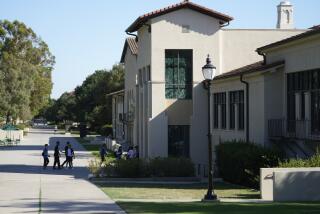Blast at Cleator Stand
- Share via
Bill Cleator is more upset with divestment and its advocates than with apartheid and its advocates. He says we all think apartheid is inherently evil and would welcome its end. But he offers not a single strategy or action that would contribute to its termination.
Instead, he vilifies divestment advocates and discredits divestment as illegal, dishonest and unethical. He ignores the only tangible concrete step available to city employees to disassociate themselves from apartheid by making sure that their pension funds are not used to support corporations doing business in South Africa.
Divestment does not mean investment funds will be wasted. It is possible to have both divestment and prudent selection of non-apartheid investments. Indeed, two of the companies Mr. Cleator mentioned as being ineligible for investment because they do business in South Africa have in fact divested themselves from their South African holdings: IBM and General Motors.
There is no reason why the San Diego city employee retirement funds cannot be invested in stock of those two corporations and hundreds of others not doing business in South Africa. Moreover, what’s wrong with investing those funds in the future of San Diego businesses?
Mr. Cleator really stretches his point when he argues that the Retirement Board would violate its fiduciary duties by divestment. That is simply false. Indeed, the unstable conditions in South Africa should concern prudent portfolio managers with holdings in that country. A prudent person would move investment funds to profitable non-South African companies.
Finally, his effort to attack divestment advocates and discredit divestment is a useful reminder of a continuing problem in the discussion of public policy in San Diego. Such tactics tend to stifle and distort honest examinations of major issues.
Mr. Cleator could have made his point without attacking those who do not share his view as being “radical chic,” “intellectually dishonest,” “ethically bankrupt” and “blind idealists.” He says he has “agonized” over the problem of divestment and “reluctantly “ come to the conclusion that divestment is intellectually dishonest.
Why should Mr. Cleator assume that those who came to a different conclusion agonized any less or are less worthy in their motives than himself?
MICHAEL J. AGUIRRE
San Diego
More to Read
Inside the business of entertainment
The Wide Shot brings you news, analysis and insights on everything from streaming wars to production — and what it all means for the future.
You may occasionally receive promotional content from the Los Angeles Times.










